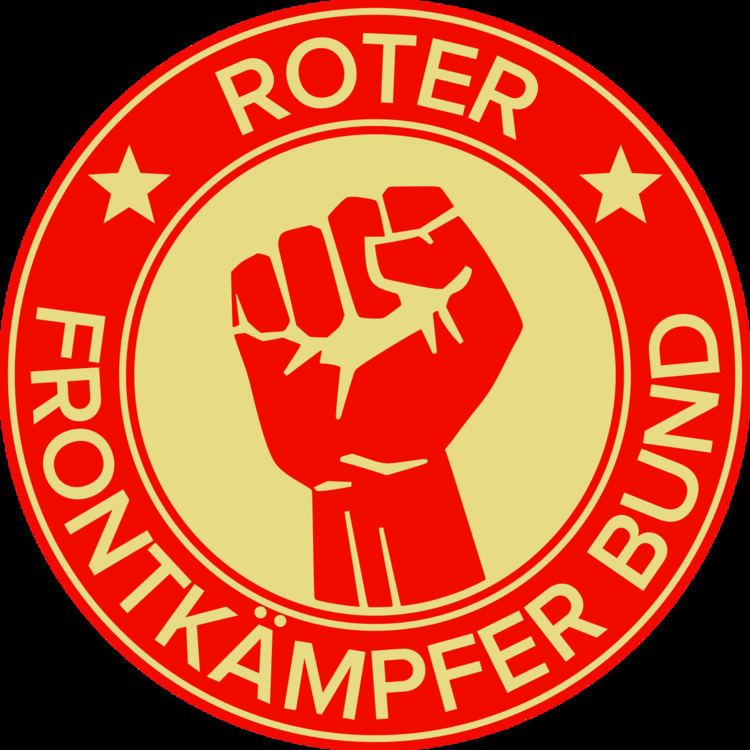While Anglos and Westerners usually at least try to pronounce, say, Japanese names right, they don’t even bother with Slavic/Eastern European ones, especially the ones with Cyrillic letters in them, which means that they end up writing the names ending with ‘ić’, as ‘ich’, and pronounce it with K. For example, if the last name is ‘Jovanović’, they’ll write it ‘Jovanovich’ and pronounce it ‘Jovanovik’.
There are names such as Ivan, Bela or Vera, which get pronounced as Ajvan, Beyla or Veyra instead of properly and of course Stalin being pronounced as Stalin instead of Staljin.
Then DimitrescU, if I have to hear it pronounced without U one more time, I’m going to lose it… They keep saying it without U, which just makes it sound French almost as if it’s Dimitresque, how hard is it to pronounce it with U?
Then the last name Ćertić, they write it as Certic or Sertic, which is completely wrong.
And the one I saw most recently, Miloch or Milosh instead of Miloš, it’s one of the most common names in Serbia and I see it frequently written like that for some goddamn reason.
So, why is it so hard for Westoids to at least try to pronounce and write Eastern European names correctly while being able do it accurately for Japanese ones which are miles harder?
Nah, expecting people to be able to pronounce words with completely different linguistic roots and write in a language they don’t speak is unreasonable. English speakers aren’t reading kanji correctly, they’re reading transliterations that turn it into phonemes they can pronounce.
Certainly it’s frustrating when Anglos won’t even try to pronounce a slightly unusual name, but expecting everyone else to know how to pronounce and spell in your langauge is chauvinistic.
The problem is when the names are so ridiculously easy to pronounce but they don’t even try, for example, Ivan is like among the easiest and shortest names to pronounce and they menage to screw it up.
No, it’s easy if you speak a Cyrillic language, if you speak English it’s a complete guess based on it’s written form. This is what I mean by it being chauvinistic, you’re assuming your linguistic experience is the default and everyone else should just know the rules to your language, just like most Anglos do. It’s like complaining about you not pronouncing Siobhan or Aisling properly, despite them being spelt how they’re said if you speak Irish.
It’s not that hard to just say Ivan or to pronounce letter U, I can understand specific Cyrillic letters, but since Anglos at least give a shit about some other languages and try it while not giving a shit about Eastern European ones, complain is warranted. That’s like me not knowing how to say John and other most simple ass names in English.
It’s not that hard to just say Ivan
As your post demonstrates, it is actually quite difficult to pronounce Ivan - your attempt at spelling it phonetically in English doesn’t work, because “aj” would be pronounced “ædʒ” or “æʒ” instead of “aɪ”, and you didn’t actually provide a correct pronunciation, you just expect everyone to know.
Anglos really don’t give a shit about other languages, and they get away with it because it isn’t like you knowing how to say John - English has had centuries of almost complete cultural hegemony, while the Slavic languages are very much confined to eastern Europe. We’re familiar with English from our schools and media, and use it to communicate on international websites like we’re doing now. We can’t avoid a familiarity with English, so we see and hear the names regularly, but almost never encounter Slavic names. People aren’t reading “Ivan” and ignoring what they’ve been taught about how to pronounce those letters, they’ve never been taught the Cyrillic pronunciations in the first place. You have been taught English pronunciations, so John is easy to you, but when we switch to normal names in a language you aren’t familiar with you run into the same difficulty Anglos do with Slavic names.
What’s the excuse for not saying U (while it’s clearly written) then?
Btw my stepfather from North Africa pronounces Slavic names better than 99% Anglos without any issue even if he didn’t hear a single Slavic word in his life beforehand.
It’s written “u”, so is assumed to be pronounced “ʌ” - the “skʌ” at the end gets shortened to “sk” with a glottel stop replacing the “ʌ”. To get the “uː” sound in english it would be expected to be spelt “ue”.
Btw my stepfather from North Africa pronounces Slavic names better than 99% Anglos without any issue even if he didn’t hear a single Slavic word in his life beforehand.
Good for him.
You read most Eastern European languages languages the exact way they’re written, which means no shortening of the letters and no French-ifying or Anglo-fying the names.
Just a further proof of how much Westoids don’t give a shit unless it’s a specific language or country they like, when someone who spoke Arabic and French the entire life knows to pronounce Slavic words without an issue. But I’m not surprised nor expect them to give any considering that they always portray Eastern Europeans as either: gopnik thugs, mafia/gang members, drunk wife beaters, buff violent boxers, supervillains/dictators bent on world domination, backward villagers or at best barely competent comic relief characters, which never changed nor will ever change.
So why would you want to even try to portray some backward grey Silent Hill hellhole full of vampires, mafia, alcoholics and bears even remotely accurately?
Easy, because Japanese has a much easier Romanized written form to read and pronounce generally than with other languages. It’s not western speaker’s fault if they have an easier way to interpret one language over another. Maybe for you Japanese names seem harder because your native language makes Japanese hard, but it’s not the case for many westerners because Romanized Japanese is more understandable to them than it may be for you
After some googling, I found this:
ć: A soft ty sound as in “Katya” or “feature”; occurs nearly exclusively in the combination ić at the end of family names. F Radić, Pavelić, Ranković, Milošević.
How do you expect people to know how to pronounce this without having studied the language before hand? It’s a pretty stupid thing to be angry about. People are raised with native language(s) and they can’t pronounce sounds or combinations of sounds not found in them without some training.
Japanese is easier to pronounce for English speakers, because it consists of simple syllables that map almost 1:1 with English ones. And people still mess up pronunciations, because of course they would, that’s how languages work, unfortunately.
It also helps that some Japanese words appear in English as their phonetic pronunciation and not their literal transliteration. E.g. tofu is actually written ‘toufu’ in hiragana, with ‘ou’ being a long ‘o’ sound.
I can excuse not knowing the ones with Cyrillic in them, but not even trying to spell Ivan correctly is just ridiculous, that’s like someone failing to say easiest 4 letter English name correctly.
To pronounce a foreign name correctly basically means to know the phonetics and orthography of that language. Pretty much no one dedicates that kind of effort. English speakers regularly mispronounce Hispanic names too and Spanish has totally unambiguous spelling.
Also, only weebs get Japanese names right consistently.
Part of the issue is most keyboards in America don’t have keys to add accent marks. macOS has Option keys, iOS has the long-press popups, and Linux has dead keys, but on Windows (the vast majority of the market), you still have to bang open Character Map or memorize numeric codes to get accented letters. Sure, you can get an international keyboard for your desktop, but most people won’t, and if you have a laptop, swapping the keyboard is significantly harder.
I wanted to correct someone’s last name in our system, changing Munoz to Muñoz. It took me a good minute to get that ñ in there. Not that most of my coworkers know how to pronounce that, mind you.
I studied Spanish in high school. That has relatively few accent marks and diacritics compared to the Eastern European languages, which was not an option at all in high school and still something I barely know.
Now, enough ranting. Are there any quick videos or tutorials for learning how to pronounce some of these letters in the various languages?
Are you sure that they are pronouncing Japanese words correctly as it is? Because mispronunciation is a lot easier to pick up if you’re a native speaker. The way that Japanese is romanised is also catered to English pronounciations.
Anyway, a lot of Slavic names have a history of being pronounced a certain way. It is a bit like being the tedious guy that insists that Barcelona should be pronounced with a lisp or that you can’t pronounce the s in Paris. I don’t doubt that you could get droves of Germans in complaining that English people pronounce Adolf as Aedolff, Karl as Caerl, Luther as Loofah or Merkel as Murkul (4 Germans off the top of my head, there are many more). When it comes to Swedish names I’m shocked if it is pronounced anywhere close to correctly so it doesn’t even register to me.
They pronounce it a hell of a lot better than Eastern European names.
The bar isn’t high if you’re complaining about the English pronounciation of Stalin.
i’m with you mostly but expecting foreigners to pronounce the palatalized consonants is a bridge too far
Anglos used to butchering everything, from people to languages.
an added complication is that there are tons of eg americans with slavic last names that also dont know (nor care) how it’s pronounced in the original, they have their own american pronunciations now. like steven baczek, who pronounces it like “basic”.
what are you gonna do, tell people they’re mispronouncing their own name?
its mostly anglophones and francophones imo, since it is very hard for them because their language has a very strong accent. but also they dont even try most of the time. in german television at least they train to pronounce every foreign name correctly, doesnt matter where from, but they pronounce it so correctly that it almost sounds weird at times, i dont know how to explain it. i think the romanized transliteration also plays a big part, becuase mostly asian languages are transliterared in a way how you would write it in english, while slavic names either are in roman letters and dont get transliterated or just change the cyrillic with latin letters. I think it would be better if we would actually write russian Josef as Iosif in english, because that would imply a different pronounciation, while Josef is just a translation of the name Iosif.
for example, do you think anyone who doesnt know any polish would automatically know how to say Brzęczyszczykiewicz? 😂
Because the Japanese names are written phonetically in the Latin script and the nature of the English language means that pronunciation is a guessing game due to a lack of accents/tonal marks. You’re angry at the wrong people OP. It’s the script and language that causes this frustration, not the people per se. It happens with names from other parts of the world that are transcribed into the Latin script.
i have no idea what any of those diacritics mean. dunno why we don’t transliterate harder, probably some 1980s computer “kohuept” shit.
Japanese got honorary whites status, while Eastern Europeans are still begging for it.
Not everyone fortunately, mostly Ukraine, Baltics and Poland.
There are plenty of wannabe westoids in other Eastern European countries too.
and Poland.
Over 1000 years of trying by now, but just one more coup, one more integration into the Reich, i swear we will fully bask in the light of westerness!







